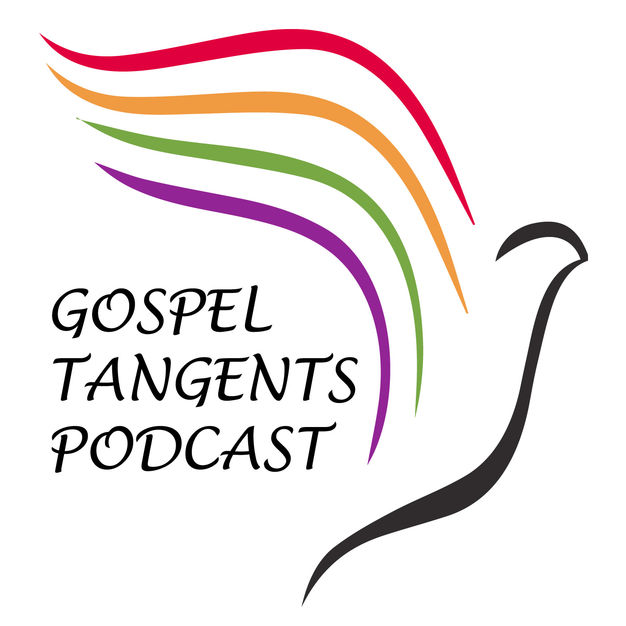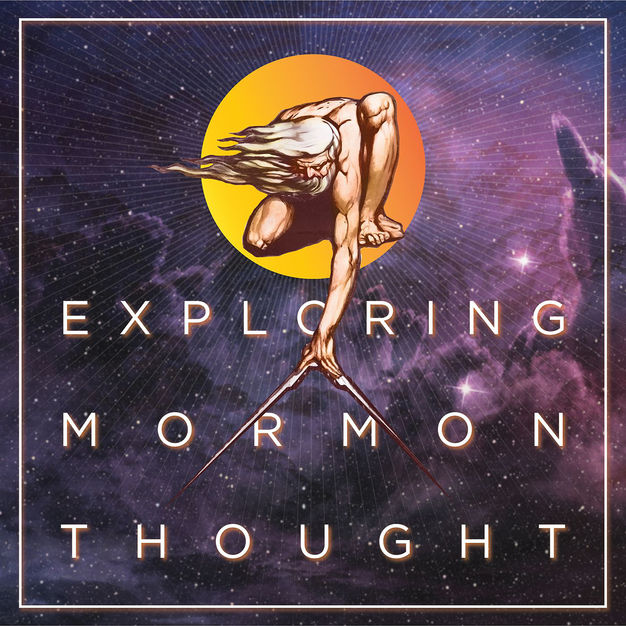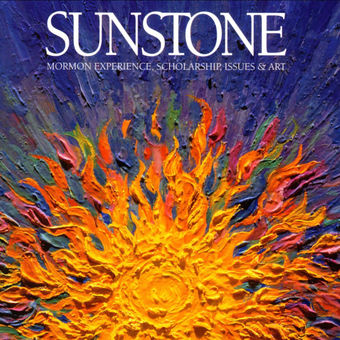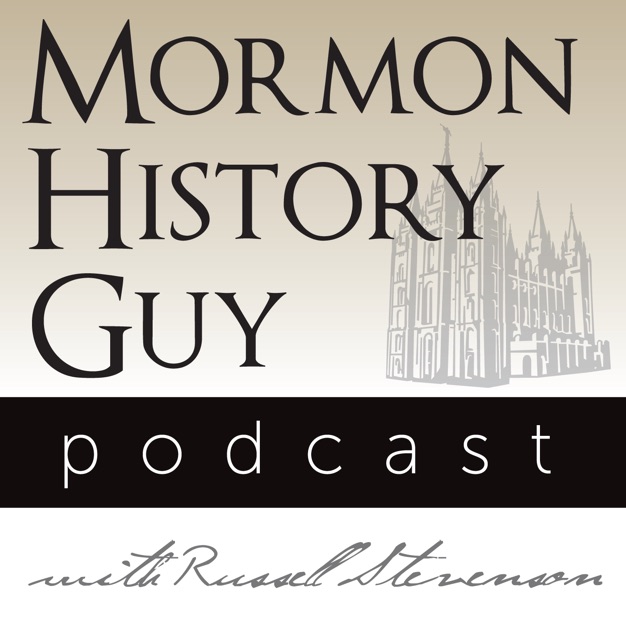
Gospel Tangents Podcast
Gospel Tangents Podcast
Gospel Tangents explores Mormon History, Science, Theology, and is a resource to learn more about real Mormon History by interviewing historians, scientists, experts, and authors. These podcasts will help generate future documentaries.
- 53 minutes 25 secondsPolygamy Road Trip (Rick B)
Tom Bennett invited me to visit Centennial Park, Arizona, a group that practices polygamy. It’s just south of the Utah border and about 50 minutes southeast of St George, Utah. Come along as we visit the community and I share my impressions of my church visit. Check out our conversation…
https://youtu.be/o8z5wSg8olQ
Don’t miss our other episodes on Mormon fundamentalism! https://gospeltangents.com/denominations/fundamentalism/
Copyright © 2025
Gospel Tangents
All Rights Reserved
Except for book reviews, no content may be reproduced without written permission.
transcript to follow
Copyright © 2025
Gospel Tangents
All Rights Reserved
Except for book reviews, no content may be reproduced without written permission.
19 January 2025, 8:18 am - 25 minutes 37 secondsHas Community of Christ Moved from Book of Mormon? (Brittany Mangelson 5 of 5)
Has the Community of Christ moved away from the Book of Mormon? We’ll ask that question to Pastor Brittany Mangelson of the Community of Christ here in Salt Lake City. We’ll also talk about the new female prophet, Stassi Cramm who will be replacing Steven Veazey. Finally, we’ll ask about how Brittany’s conversion affected her LDS family. Check out our conversation…
https://youtu.be/c3O0sEh6WGo
Don’t miss our other conversations with Brittany: https://gospeltangents.com/people/brittany-mangelson
transcript to follow
Copyright © 2024
Gospel Tangents
All Rights Reserved
Except for book reviews, no content may be reproduced without written permission
transcript to follow
Copyright © 2024
Gospel Tangents
All Rights Reserved
16 January 2025, 12:40 pm - 43 secondsSonia Johnson Is Different Kind of Lesbian (Chris Talbot 4 of 4)
Following the dissolution of her marriage, Sonia Johnson came up with her own view of gender essentialism and had some lesbian relationships. Was she bisexual, or a political lesbian? Dr Chris Talbot explains. Check out our conversation…
https://youtu.be/SylSk1vPY48
Don’t miss our other episodes with Dr Chris talbot! https://gospeltangents.com/people/chris-talbot/
Copyright © 2025
Gospel Tangents
All Rights Reserved
Except for book reviews, no content may be reproduced without written permission.
transcript to follow
Copyright © 2025
Gospel Tangents
All Rights Reserved
Except for book reviews, no content may be reproduced without written permission.
15 January 2025, 2:15 pm - 22 minutes 33 secondsSonia Johnson’s Presidential Campaign 1984 (Chris Talbot 3 of 4)
Sonia Johnson ran for President of the United States in 1984 against Ronald Reagan & Walter Mondale. Did she expect to win? Dr Chris Talbot discusses Sonia’s presidential run, her attempt to lead the National Organization for Women, her failed marriage, and her possible attempts at anarchy. Check out our conversation…
https://youtu.be/U4lxIoTPqek
Don’t miss our other episodes with Dr Chris talbot! https://gospeltangents.com/people/chris-talbot/
Copyright © 2025
Gospel Tangents
All Rights Reserved
Except for book reviews, no content may be reproduced without written permission.
transcript to follow
Copyright © 2025
Gospel Tangents
All Rights Reserved
Except for book reviews, no content may be reproduced without written permission.
12 January 2025, 2:11 pm - 33 minutes 17 secondsSonia Johnson Vs LDS Church (Chris Talbot 2 of 4)
The LDS Church didn’t like Sonia Johnson’s activism for the Equal Rights Amendment. What were the exact criticisms of her? Which figures in the LDS Church tried to refute Sonia Johnson? We’ll discuss what made Church leaders angry, and her appearance on the famous “Phil Donahue Show.” Check out our conversation…
https://youtu.be/172RYmJBbYc
Don’t miss our other episodes with Dr Chris talbot! https://gospeltangents.com/people/chris-talbot/
Copyright © 2025
Gospel Tangents
All Rights Reserved
Except for book reviews, no content may be reproduced without written permission.
transcript to follow
Copyright © 2025
Gospel Tangents
All Rights Reserved
Except for book reviews, no content may be reproduced without written permission.
9 January 2025, 2:15 pm - 30 minutes 48 secondsSonia Johnson Fights for Equal Rights Amendment(Chris Talbot 1 of 4)
Sonia Johnson became enraged in 1979 when the LDS Church came out in opposition to the Equal Rights Amendment. Dr Chris Talbot has written a history titled “Sonia Johnson: A Mormon Feminist.” We’ll dive into the political landscape in the 1970s & tell Sonia’s story.. Check out our conversation…
https://youtu.be/R3kjFEdW1es
Don’t miss our other episodes with Dr Chris talbot! https://gospeltangents.com/people/chris-talbot/
Copyright © 2025
Gospel Tangents
All Rights Reserved
Except for book reviews, no content may be reproduced without written permission.
transcript to follow
Copyright © 2025
Gospel Tangents
All Rights Reserved
Except for book reviews, no content may be reproduced without written permission.
6 January 2025, 2:15 pm - 1 hour 23 minutesBest of 2024, Awards, & Looking back at 1000 episodes! Happy New Year! (GT Live)
I started Gospel Tangents almost 9 years ago and Jan 1, 2025 marks 1000 episodes! In celebration of the New Year and my 1000th episode, we’ll look back at 2024. What were the most viewed videos? What were my favorite books published in 2024? We’ll also look at the Top 10 Most Viewed Videos over 1000 episodes, and 15 of my favorite videos that didn’t crack the top 10 most viewed. Come celebrate with me! Check out viewer comments and my presentation!
Sorry for the abrupt ending. My laptop battery died.
https://www.youtube.com/live/UImEizz8Tj0
Don’t miss our other Gospel Tangents Live episodes! https://gospeltangents.com/mormon_history/gt-live/
Copyright © 2025
Gospel Tangents
All Rights Reserved
Except for book reviews, no content may be reproduced without written permission.
transcript to follow
Copyright © 2025
Gospel Tangents
All Rights Reserved
Except for book reviews, no content may be reproduced without written permission.
2 January 2025, 5:26 pm - 48 minutes 42 secondsInfant Baptism in BoM Historical? (Brant Gardner 4 of 4)
The Book of Mormon disparages infant baptism. Did it really happen, or is it an anachronism as Alexander Campbell claimed? Brant Gardner will tackle that topic along with Israelite polytheism & chiasmus. Check out our conversation…
https://youtu.be/2yJh1kLWu1w
Don’t miss our other conversations with Brant Gardner! https://gospeltangents.com/people/brant-gardner
Copyright © 2024
Gospel Tangents
All Rights Reserved
Except for book reviews, no content may be reproduced without written permission.
transcript to follow
Copyright © 2024
Gospel Tangents
All Rights Reserved
Except for book reviews, no content may be reproduced without written permission.
31 December 2024, 2:30 pm - 29 minutes 39 secondsHow Can 19th Century Book of Mormon Anachronisms Be Explained? (Brant Gardner 3 of 4)
What are the 19th century Book of Mormon anachronisms in the Book of Mormon? How can we reconcile them? Brant Gardner shares his perspective. We’ll discuss his 2 new books on the Book of Mormon – “Plates of Mormon” & “Engraven Upon Plates, Printed Upon Paper.” Check out our conversation…
https://youtu.be/rTgwNPfBjXA
Don’t miss our other conversations with Brant Gardner https://gospeltangents.com/people/brant-gardner
Copyright © 2024
Gospel Tangents
All Rights Reserved
Except for book reviews, no content may be reproduced without written permission.
transcript to follow
Copyright © 2024
Gospel Tangents
All Rights Reserved
Except for book reviews, no content may be reproduced without written permission.
29 December 2024, 3:00 pm - 52 minutes 58 secondsIs White & Delightsome Racist Scripture? (Brant Gardner 2 of 4)
Is White & Delightsome racist scripture in the Book of Mormon. Brant Gardner will tackle that in out next conversation. He’s the author of 2 books, “Plates of Mormon” & “Engraven Upon Plates, Written Upon Paper.” He’ll also discuss KJV English (or is it Tyndale English?) & horses in the Book of Mormon. Check out our conversation…
https://youtu.be/4v-mi7HYS7w
Don’t miss our other conversations with Brant Gardner! https://gospeltangents.com/people/brant-gardner
Copyright © 2024
Gospel Tangents
All Rights Reserved
Except for book reviews, no content may be reproduced without written permission.
transcript to follow
Copyright © 2024
Gospel Tangents
All Rights Reserved
Except for book reviews, no content may be reproduced without written permission.
27 December 2024, 2:45 pm - 53 minutes 4 secondsBrant Gardner Translation of Book of Mormon (1 of 4)Brant Gardner has put out not one, but 2 books on the Book of Mormon. The first is titled "Plates of Mormon" & is the "Brant Gardner Translation." He has re-punctuated it and added study helps. The second is a commentary called "Engraven Upon Plates, Written Upon Paper," where he gives even more commentary on the Book of Mormon. Check out our conversation... https://youtu.be/eSuiEE0fPng Don’t miss our other conversations with Brant Gardner! https://gospeltangents.com/people/brant-gardner Copyright © 2024 Gospel Tangents All Rights Reserved Except for book reviews, no content may be reproduced without written permission. transcript to follow Copyright © 2024 Gospel Tangents All Rights Reserved Except for book reviews, no content may be reproduced without written permission.25 December 2024, 11:02 pm
- More Episodes? Get the App
Your feedback is valuable to us. Should you encounter any bugs, glitches, lack of functionality or other problems, please email us on [email protected] or join Moon.FM Telegram Group where you can talk directly to the dev team who are happy to answer any queries.
 Sunstone Magazine
Sunstone Magazine
 Exploring Mormon Thought
Exploring Mormon Thought
 Sunstone Institute Podcast – Sunstone Magazine
Sunstone Institute Podcast – Sunstone Magazine
 Mormon History Guy
Mormon History Guy
 Greg Kofford Books - Authorcast
Greg Kofford Books - Authorcast